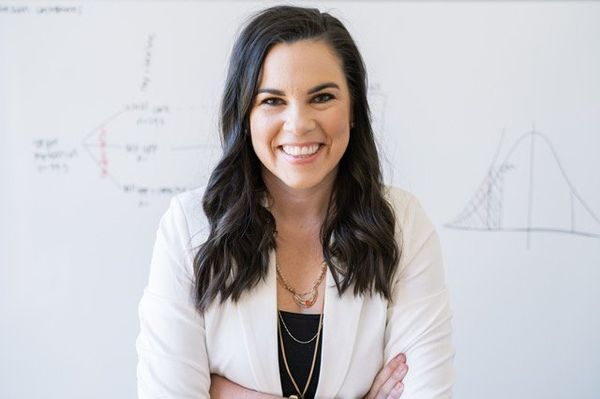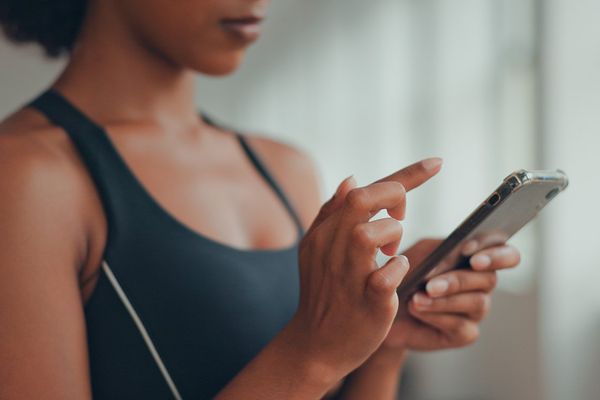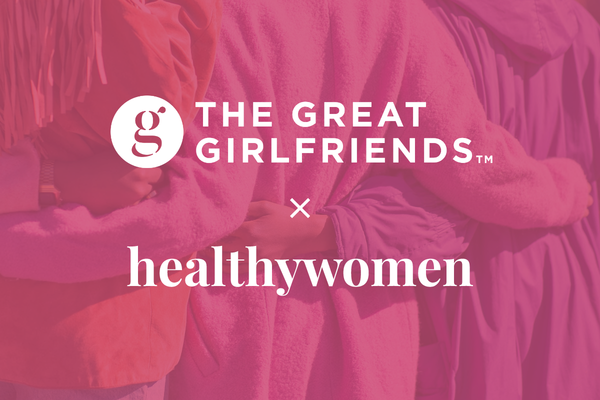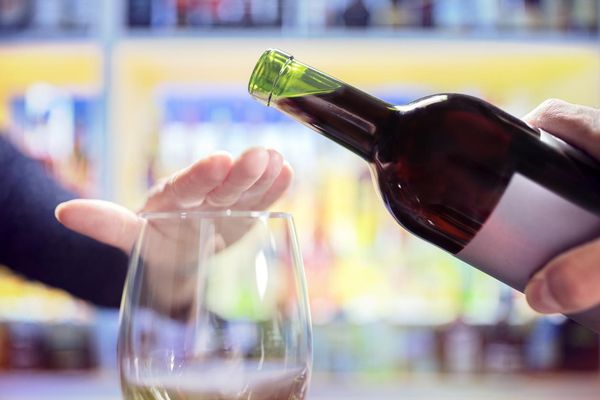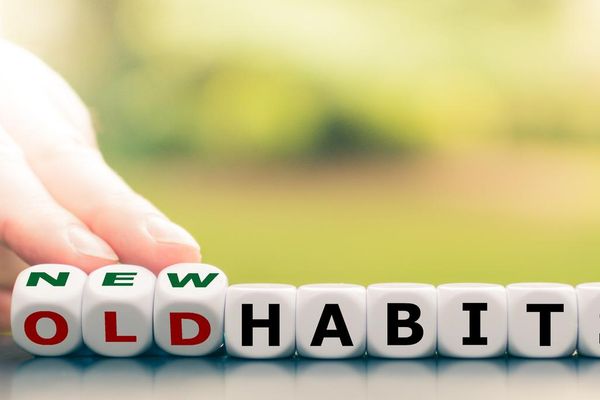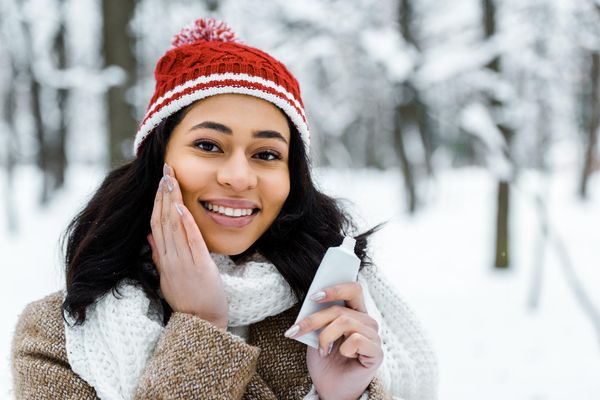The Dream is a popular new podcast, known for delving into the multi-level marketing industry in Season One. Now, in Season Two, the show has turned its investigative eye on the wellness industry. This season explores how wellness companies and "influencers" target vulnerable people, and women in particular, to purchase products and services that are not only ineffective but may in fact be harmful.
The podcast's host, Jane Marie, is a compelling storyteller whose authentic personal insights and hard-hitting investigative skills have helped drive the show's popularity. Prior to creating The Dream, Jane was a producer on This American Life and hosted the Tinder podcast DTR. As a child, Marie said she observed her relatives' obsession with essential oils and alternative treatments, an experience that prompted her interest in the multi-million dollar myth of wellness.
Marie spoke with HealthyWomen about why women often feel unheard in our medical system, how the wellness industry targets women with their aspirational pitch, and how most of what the wellness industry attempts to sell can actually be obtained for free.
HealthyWomen: Tell us the story about your aunt, Amy, who struggled for years to find a diagnosis for her abdominal pain and other symptoms.
Jane Marie: My aunt and I are very close. She dealt with abdominal pain and what seemed like autoimmune symptoms for many years after the birth of her first child. She went to god-knows-how-many doctors. She got lots of diagnoses. She thought maybe she had to have her thyroid removed or a total hysterectomy. The majority of doctors and naturopaths she saw recommended that she see a therapist. They told her that her complaints were in her head, that she was stressed out or having anxiety.
She was finally diagnosed with endometriosis that grew outside of her uterus as a result of her C-section. It took her 15 years to be diagnosed. She got a lot of relief after surgery to remove those growths.
HealthyWomen: Why do you think your aunt turned to alternative therapies to treat her condition?
Marie: No one was offering anything that actually helped her. People didn't know what was wrong with her and didn't believe her when she would point specifically to the place in her body that was hurting. She was experiencing fatigue, she lost a ton of weight really rapidly. She was sick and in pain. I think having quote-unquote "real doctors" not be able to figure it out, she was like, "I guess I'll ask someone else."
The other thing is, my aunt is not a wealthy woman. She lives below the poverty line. I think if she had tens of thousands of dollars to spend, she probably could have googled the world's expert and flown somewhere and gotten diagnosed sooner. But she doesn't have those sorts of resources. So when someone around her said, "Try this vitamin" or "Try this essential oil, it's only $50 or $100 dollars," she went for it.
She turned to a lot of alternative therapies. Oils, different vitamins, going to a lot of different naturopaths for treatment. It was hard to watch.
HealthyWomen: Do you think the wellness industry preys on women in particular?
Marie: Absolutely. It was easier to answer that question when we were looking at multi-level marketing [in Season One of the podcast]. That industry is looking for people who want extra income on their off-hours, and those people are usually stay-at-home moms. The industry figured that out, gosh, almost 100 years ago. So [targeting women] is baked into the whole philosophy of multi-level marketing.
As far as wellness, I think the industry preys on women, and I think it's getting worse. A lot of the packaging you see on Goop or certain companies like Moon Juice are all about "beauty from the inside," so you don't even need to have a physical ailment to be a target for their marketing. All you have to have is a shortage of self-esteem and, voilà, we have a product for you.
For example, I'm a mom. All the marketing is targeted directly to me. "Are you tired most of the time? Are you stressed out? Does no one think about you and care about you? Would you like your skin to be healthier, and would you like to be 10 pounds thinner?" Yes, yes, yes, yes, and yes. The majority of the products are marketing themselves that way.
HealthyWomen: The wellness industry seems to take advantage of the need for women to "always be optimizing," as writer Jia Tolentino documented in her 2019 book of essays,"Trick Mirror." Where does the concept of "wellness" stop being about health and start becoming more about beauty and desirability?
Marie: So much of wellness isn't about health at all. There's a section of wellness, like vitamins, that are supposedly about health care but the vast majority of wellness procedures, services, and products are leisure activities for people of means, and I think that's where it stops being about health. It's about wealth.
HealthyWomen: In the podcast, you share that you began to experiment with wellness yourself. You were surprised to find a treatment that you liked. Can you tell us about that?
Marie: The tuning fork! The experience was a little sensual in a way that I really enjoyed. It was music being made for me in the moment. The tuning forks — when they touch them to your body, they send out these vibes. When I left that place I felt like I was talking about it the way people talk about hot yoga. I loved it. It was transformative. I'd never felt that rush of endorphins before. It was very expensive though. I would do it all the time but I can't actually afford it as a podcaster.
HealthyWomen: How can women distinguish between helpful alternative therapies and predatory product-pushing?
Marie: First of all, when anything strikes you as too good to be true, it is. Just trust your gut. I have a 6-year-old daughter who I'm raising, and one of my main priorities with her is teaching her to trust her gut. We don't need to be nice to people, especially hucksters who are trying to sell us some miracle diet or essential oil. If your [BS] detector goes off, then don't waste your time.
At the same time, if something is low impact on your wallet and your time, and it helps you feel better then, whatever, do it. I think we know when things are bogus, but we have really famous people like Gwenyth Paltrow or Tom Brady telling us they're not bogus, and then we doubt ourselves. But those people have a team of doctors and all the money and time in the world to explore how many injectables they can get.
I think there is value in the self-care aspect of wellness. We all should be taking time out for ourselves and spending as many hours as we can a week just being mindful and feeling good. But also, if you have cancer, go to a real oncologist.
HealthyWomen: What is "the dream" as sold by the wellness industry?
Marie: That you can live forever in your most beautiful body and also reach spiritual enlightenment or something. If that's what you're looking for, you can get most of that for free.
You have to eat, so eat good food. Spend your time with non-toxic people. Go to church or whatever your thing is. You don't need to spend hundreds of thousands of dollars on something to have spiritual enlightenment and to feel like your life was well-lived. My grandmother buys essential oils but that's not all she does. She mostly eats her own canned food on the farm and goes to church. She's gonna live forever.
HealthyWomen has lightly edited this transcript for clarity and inserted hyperlinks where relevant.


